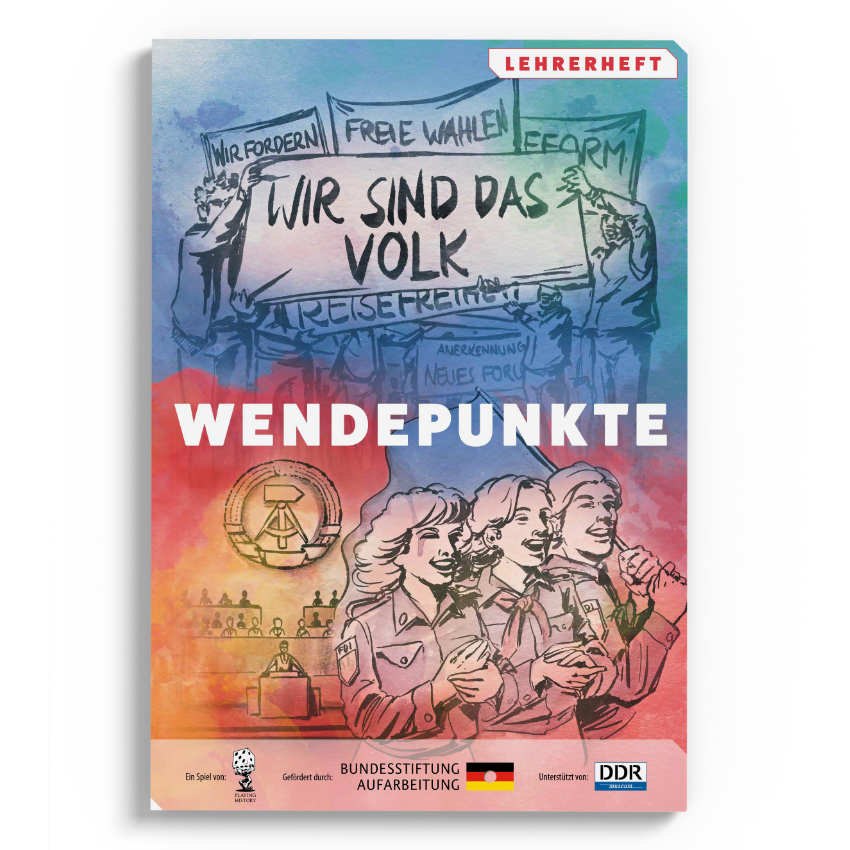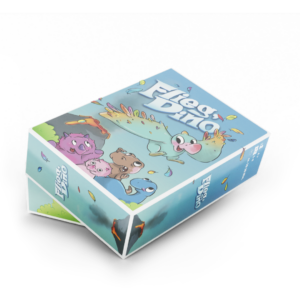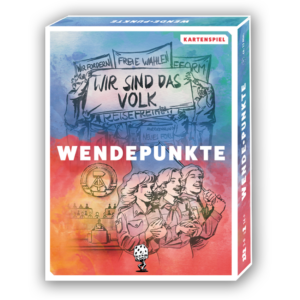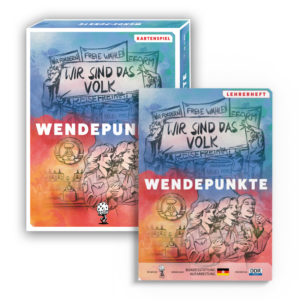Description
Voices of teachers:
, high school teacher at Berlinickeplatz Berlin
WENDEPUNKTE meets the challenges of teaching history with a student- and problem-oriented card game. The teaching material, which is methodologically clever and varied, addresses numerous topics relevant to the curriculum. Particularly good are the current references that the material makes of historical contexts.
WENDEPUNKTE gives students a playful approach to the complex of GDR history. The card game is cleverly conceived and attractively designed. It immediately arouses the interest of the class. The teaching material provides teachers with a comprehensive, varied and qualitatively outstanding aid for approaching this piece of contemporary history in a differentiated way.
WENDEPUNKTE is a carefully prepared teaching material that can be used in a differentiated manner and for a wide range of requirements - even across subjects. The combination of game and accompanying material provides the methodical-didactic basis to approach relevant topics of history and society in a realistic, interactive and fact-based way.
WENDEPUNKTE gives your students a feel for life in the GDR and the time after. The playful re-experiencing requires the players* to make decisions and thus to critically comprehend the depicted situation. "How would you have acted?" and "What factors influence your actions?" are central questions. Scoring twice in the game - before and after 1989 - illustrates the paradigm shift that occurred at that time and why events are evaluated differently at different times.
This playful impulse confronts the students with the circumstances, dependencies and constraints of a system that they themselves no longer experienced and gives you, dear teachers, numerous starting points for designing your lessons. The accompanying booklet contains numerous ideas to deepen the topic beyond the game experience.







